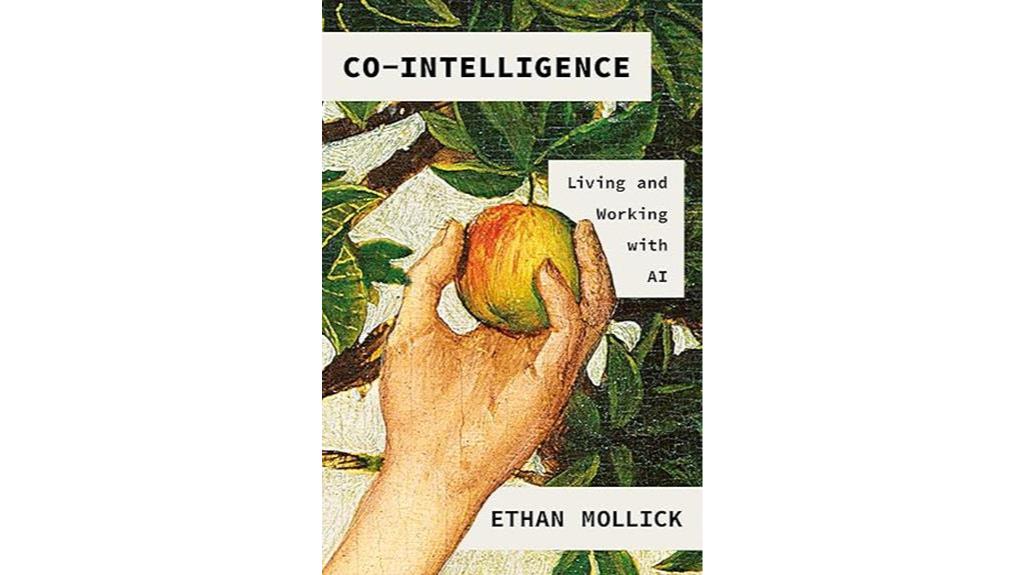As I sit at my desk, surrounded by the soft glow of screens and the gentle hum of machines, I'm struck by the realization that artificial intelligence is no longer just a tool, but a partner in my daily work. It automates tasks, analyzes data, and even offers suggestions, freeing me to focus on the creative and strategic aspects of my job. But as I begin to explore the concept of co-intelligence – the harmonious collaboration between humans and AI – I'm left wondering: what does this mean for the future of work, and how can we ensure that this partnership truly benefits both parties?
Key Takeaways
- Co-intelligence enables humans and AI to collaborate effectively, driving innovation and improving work quality.
- Overdependence on AI can erode human critical thinking skills and expertise, requiring active mitigation efforts.
- AI is transforming education, promoting personalized learning, and fostering inclusivity for future generations.
- Organizations must adapt to AI-driven changes, reevaluating structures, talent acquisition, and performance metrics to remain competitive.
Enhancing Work With AI
I find that leveraging AI can significantly enhance my work by automating routine tasks, augmenting my creative capabilities, and providing data-driven insights that inform my decision-making. With AI, I can offload mundane tasks and focus on high-leverage activities that drive real value. I use AI-powered tools to analyze large datasets, identify patterns, and generate ideas that I wouldn't have thought of on my own. This not only saves me time but also expands my creative possibilities. By working alongside AI, I can deliver higher-quality results, innovate more quickly, and stay ahead of the curve in my field. Overall, AI has become an indispensable partner in my work, freeing me up to concentrate on what matters most – creating, strategizing, and solving complex problems.
AI in Organizational Change
Organizational change is being driven by AI's ability to disrupt traditional job structures and corporate hierarchies, forcing companies to adapt and evolve to remain competitive. I see this change unfolding in various industries, and it's not surprising why. With AI tools becoming increasingly accessible, employees are leveraging them to streamline their work, often covertly due to fear of management repercussions. As AI transforms the nature of jobs and the skills required to do them, companies need to rethink their organizational structure, talent acquisition, and performance metrics. I realize that embracing AI is not without its challenges, but for companies that fail to adapt, the risk of being left behind is high, and the consequences are not just financial but also irrelevance in the long term.
Risks of Overdependence on AI
As companies increasingly rely on AI to drive efficiency and innovation, the potential risks of overdependence on these technologies become more pronounced, threatening to erode critical thinking skills and expertise in the process. I've noticed that the more I use AI tools, the more I tend to rely on them for even the smallest tasks. It's as if I'm outsourcing my problem-solving skills to machines. While AI can certainly augment my abilities, I worry that I'm losing touch with the underlying skills that make me valuable in the first place. Mollick's book highlights this risk, warning that an overreliance on AI could lead to a decline in human expertise and critical thinking. It's a concern that I take seriously, and one that I'm actively working to mitigate.
AI's Future in Education
Some of the most intriguing implications of AI's rise can be seen in the education sector, where the technology is poised to revolutionize the way we learn and teach. As I delve into this topic, I realize that AI can tailor educational experiences to individual students' needs, abilities, and learning styles. AI-powered adaptive systems can continuously assess student performance, providing real-time feedback that helps teachers refine their instruction. I envision AI mentors taking on a more prominent role, offering one-on-one guidance that human educators often can't provide due to classroom size constraints. With AI, we can unlock new learning pathways, democratize access to education, and foster a more inclusive and effective education system. This will be crucial in preparing future generations for an increasingly AI-driven world.
